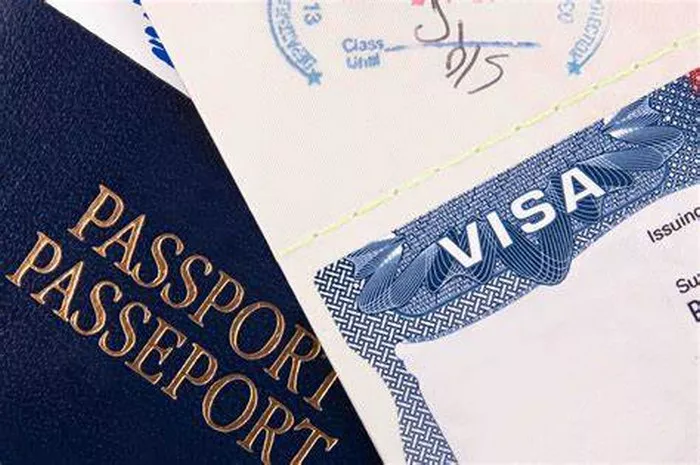In an era of global education, the pursuit of academic excellence often transcends geographical boundaries. As students aspire to broaden their horizons by studying abroad, the process of obtaining a student visa becomes a crucial aspect of their journey. The intricate web of bureaucratic procedures and regulations can be daunting, leading many to wonder: How long does it take to process a student visa? This comprehensive guide aims to shed light on the various factors influencing the processing time, providing prospective international students with valuable insights and a roadmap for a smoother application experience.
Decoding the Student Visa Process
Before delving into the timelines, it’s imperative to understand the multifaceted process that governs the issuance of student visas. The journey typically begins with securing admission to an educational institution abroad. Once accepted, the student must initiate the visa application process, which involves meticulous documentation, background checks, and adherence to specific eligibility criteria.
1. Documentation and Eligibility Criteria
The documentation required for a student visa application varies from country to country. However, common elements include proof of acceptance from a recognized educational institution, financial capability to cover tuition and living expenses, a valid passport, and often a health insurance plan. Meeting these criteria is a prerequisite for a successful application and influences the overall processing time.
2. Background Checks and Security Clearance
In an era of heightened security concerns, many countries conduct thorough background checks on visa applicants. This involves scrutinizing the applicant’s criminal record, if any, and assessing the potential risk associated with granting them a visa. The duration of these checks can significantly impact the overall processing time, often leading to delays beyond the applicant’s control.
3. Consular Interview and Biometrics
A pivotal step in the visa application process is the consular interview. This face-to-face interaction allows consular officers to assess the applicant’s intentions, ties to their home country, and overall eligibility for a student visa. Additionally, biometric data, such as fingerprints and photographs, may be collected during this stage, adding another layer to the processing timeline.
Factors Influencing Processing Time
Understanding the factors that contribute to the processing time is essential for prospective students planning their educational journey abroad. While each country maintains its unique visa processing framework, several universal elements influence the timeline.
1. Country-Specific Policies and Procedures
The processing time for student visas is inherently linked to the policies and procedures established by the destination country. Countries with streamlined visa processes and efficient bureaucracies often boast shorter processing times. Conversely, nations with intricate visa regulations and bureaucratic red tape may subject applicants to lengthier waiting periods.
2. Peak Application Seasons
The academic calendar plays a pivotal role in determining the volume of visa applications received by consulates and embassies. Peak seasons, such as the months preceding the commencement of a new academic year, witness a surge in applications, leading to increased processing times. Prospective students are advised to plan their application submissions with these peak seasons in mind to avoid unnecessary delays.
3. Complexity of the Application
The complexity of a visa application is directly proportional to the processing time. Applicants with straightforward cases, clear documentation, and no red flags in their background checks typically experience faster processing. Conversely, applicants with complex circumstances, such as prior visa rejections or discrepancies in their documentation, may face prolonged processing times as authorities meticulously review their cases.
4. Changes in Immigration Policies
The political landscape and immigration policies of a destination country can undergo rapid changes, directly impacting visa processing times. Shifts in government priorities, diplomatic relations, or security concerns may lead to alterations in visa processing procedures, catching applicants unaware and potentially prolonging the overall timeline.
Navigating the Process: Tips for Applicants
Armed with a comprehensive understanding of the factors influencing student visa processing times, prospective international students can take proactive steps to navigate the process efficiently.
1. Early Application Submission
The adage “the early bird catches the worm” holds true in the realm of visa applications. Initiating the process well in advance provides applicants with a buffer to address any unforeseen delays and ensures that their application is part of the initial batch for review.
2. Meticulous Documentation
Accurate and complete documentation is the cornerstone of a successful visa application. Prospective students should meticulously gather and organize all required documents, ensuring they meet the specific criteria outlined by the destination country. Any discrepancies or missing information can lead to delays and even visa rejections.
3. Consistent Communication
Maintaining open and consistent communication with the educational institution and the relevant consular office is crucial. Applicants should promptly respond to any requests for additional information and stay informed about the progress of their application. This proactive approach can expedite the resolution of any potential issues that may arise during the processing period.
4. Stay Informed About Policy Changes
Given the dynamic nature of immigration policies, staying informed about any changes or updates is essential. Regularly checking the official website of the destination country’s immigration authority and subscribing to relevant newsletters can help applicants stay abreast of any policy modifications that may affect their application.
Realistic Expectations and Patience
In the pursuit of a global education, prospective students must cultivate realistic expectations and exercise patience. Visa processing times are inherently variable, and external factors beyond the applicant’s control may influence the timeline. Maintaining a positive mindset and preparing for the possibility of delays can mitigate stress and frustration throughout the application process.
Conclusion
In the intricate tapestry of international education, the processing time for student visas serves as a crucial thread. Navigating this journey requires a blend of meticulous preparation, awareness of country-specific policies, and a patient approach. As the global landscape continues to evolve, prospective students must equip themselves with the knowledge and tools to navigate the complexities of the visa application process successfully. By understanding the factors influencing processing times and adopting a proactive mindset, aspiring international students can embark on their educational journey with confidence and optimism.


